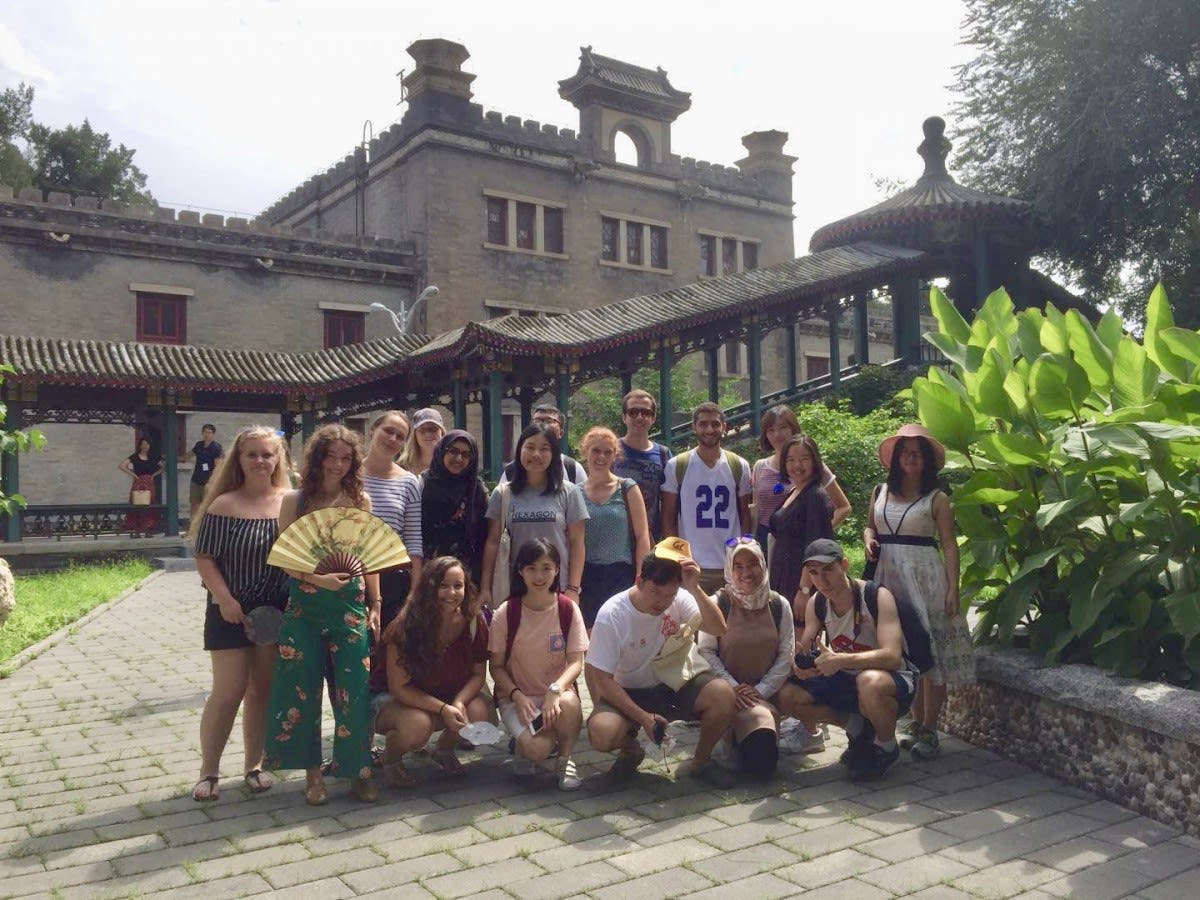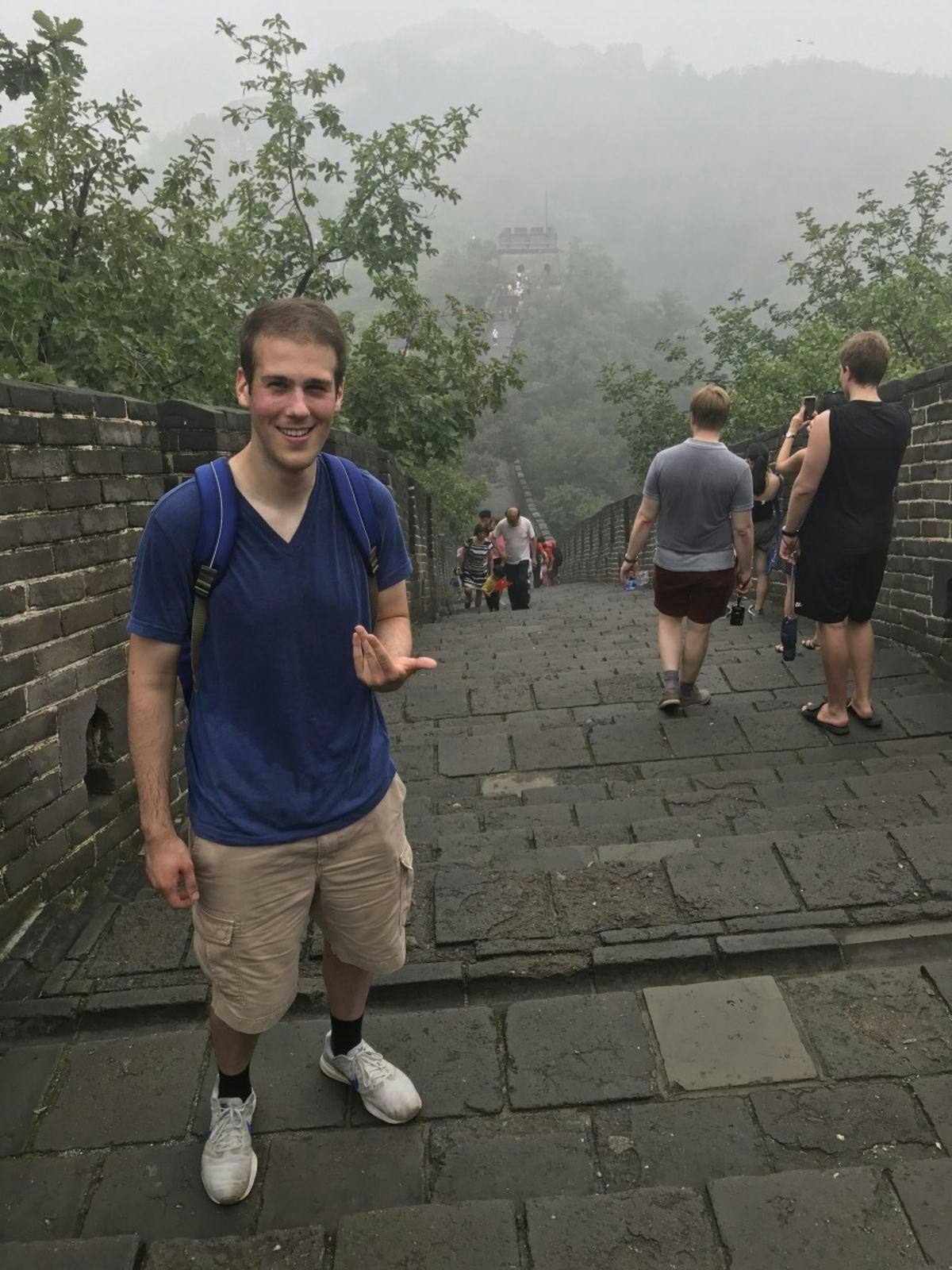Flagship Stevens Cohort Returns from “Eye Opening” Tsinghua Summer Experience
As part of a new agreement between Stevens Institute of Technology and Tsinghua University, two Stevens students were selected to participate in the Experiencing China Tsinghua International Summer School program. It was part of the first phase of the agreement between the two schools as they create mutually beneficial undergraduate student exchanges, dual M.S. degrees and joint/co-Ph.D programs in cybersecurity, artificial intelligence and deep learning.
The first undergraduate student exchanges happened this summer. One enabled eight bright Tsinghua undergraduate students to participate in key research projects at Stevens. The other enabled star Stevens undergraduates Mary McNeil and Matthew Falco to participate in fully funded, China-focused curricular tracks at Tsinghua.
"Going to China for the Experiencing China Tsinghua International Summer School program was my first experience traveling to another country," Falco says. "I wanted a global cultural immersion experience. I expected to learn a ton about Tsinghua, China and innovation and entrepreneurship. I learned so much more."
"Honestly, I expected Beijing to be something completely different," McNeil says. "My experience was absolutely amazing and better than I could have ever expected. The people I met and were very close to helped enrich my experience and really made it worthwhile."
Falco is a chemical engineering junior who will participated in the innovation and entrepreneurship curricular track. "As a chemical engineering student, I wanted to learn about innovation and entrepreneurship since I may go into the corporate sector down the line in my career," Falco says. "I chose the innovation and entrepreneurship track to learn skills about working in the business sector or building my own business."
More than 40 international students participated in the innovation and entrepreneurship track. Their final project was to create a business model for a product that would succeed in China—on the second to last day of the program. "It was really intense," Falco says, "we only had 16 hours, so there was pressure on me and my teammates to make the best product we could in the shortest amount of time. It was like a hackathon, and we felt like we were actually building our own business."
After brainstorming a few ideas that would not only be marketable but also benefit China, Falco and his teammates developed an app system. "It’s called “Chin-easy” and it helps western tourists navigate the blacklisting of major apps like Google, Instagram and Facebook by downloading equivalent Chinese apps," he explains.
It was voted the best of the track by the other students, enabling them to present at the final expo on the last day of the program. The winning group for each track presented their projects to the entire 300 student cohort and the professors, where an overall winner was selected.
"It was amazing to present in front of all the other students and professors," Falco says. "I’ll never forget being on stage and sharing an idea that I was very proud of."
McNeil is a chemical engineering sophomore who participated in the architectural curricular track. "My learning track entailed lectures and a lot of field trips," she says. "I was happy because the amount of lectures didn’t seem overwhelming and they were very detailed and enriching. The field trips were honestly magical and I got to experience and immerse myself in a lot of Beijing’s history and culture."
The last two days of her program involved creating and presenting a poster on what she had learned to her track. She also wrote an essay describing her experiences—good and bad—with Beijing culture, "My professor wanted it to be critical, and I really liked that because I felt like I wasn’t sugar coating anything and was being very real," McNeil says.
McNeil also presented in front of the entire cohort at the final expo, "which was amazing," she says.
In addition to those experiences, Falco and McNeil have plenty of lessons for future Stevens participants in the Experiencing China Tsinghua International Summer School program. "Be prepared to change your perspectives of the world," says Falco. "Everyone is fascinated when you say you’re from the U.S. Be ready with your opinions—and ready to have them changed."
"If you have the opportunity to even apply, do it!" McNeil says. "It was the most amazing experience. As a freshman, I thought that I would never get in. But I made the most out of the application and successfully sold myself. I still cannot believe that I was given the scholarship and I am so grateful."
Still, the biggest lessons Falco and McNeil learned were outside their programs. "If I could describe the experience simply, I would say it was eye-opening," says Falco. "I expected to learn about China and I ended up learning a lot about rest of world. It was an international program, so I met students from many countries including Germany, Switzerland, Canada, Brazil, India, South Korea, France—and many more. I learned about other students’ home countries and their own cultures compared to American and Chinese cultures, and I came back more world-rounded."
"Would I do it again if I had the chance? Everyday and twice on Sunday," says McNeil. "It is one of the top experiences of my life. I talk to the people that I met there almost every day and I can’t wait to visit them in the places they live all around the world. It also made me want to visit other places in China."
These kinds of eye-opening experiences is why Stevens is committed to creating and providing these kind of international exchange programs for students to live and research in different countries. In an increasingly global world, engineers must not only be well-trained but able to work in a global community. This is why this program—as well as the sustainable energy and other undergraduate study abroad programs—is so important.
"We are so excited that our students were able to have this experience," says Jean Zu, dean of the Schaefer School of Engineering and Science. "These programs were an excellent beginning to Stevens partnership with Tsinghua University, and outstanding opportunities for student success. We believe this program and partnership will help us build a world-class school of science and engineering."




